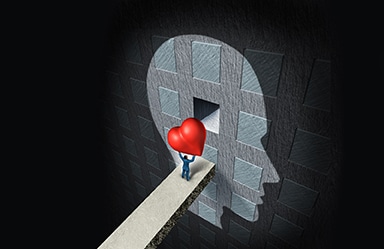
Creating a Sephardic-Friendly School Culture
March 5, 2019
Engaging the Heart and Teaching the Mind
March 5, 2019RABBI DR. URIEL LUBETSKI
Planning for Student-Teacher Relationships
Although we are aware of the importance of creating positive relationships with students, not all educators purposefully plan for it. As teachers prepare for their year, they construct their curriculum, develop their classroom management approach, and formulate their lessons. Teachers must also deliberately design a strategy to promote meaningful relationships with their students. Relationships are strengthened when administrators and teachers take the time to learn about their students and the challenges they face. Most adults would love to spend more time building relationships with their students, but the need to complete the curriculum or lack of time prevents it. By setting aside time and integrating relationship building into the curriculum, administrators and teachers can overcome these obstacles.
Teachers can develop relationships with their students simply by conversing with them about their lives. Initiating activities or rituals that bring teachers and students together and affording them a chance to talk to and about each other are critical steps to realizing these discussions. While students are doing group work in class, the teacher may devote some of that time for an informal discussion. Joining their groups and sharing in the learning process is a great way for a teacher to learn more about students and relate details about the teacher’s life. More formally, some teachers schedule one-on-one five-minute conferences that take place periodically.
The Importance of Being Appreciated by the Teacher
When there is a positive teacher-student relationship, students feel safe and there is a strong bond of trust within the classroom. Students are not afraid to take risks and understand that making errors are all part of the learning process. Students are more likely to feel positive about school and have a greater chance of developing a true love for learning.
Our Sages intuited this idea as well. In Yalkut Shimoni (Psalms Chapter 1) our Sages say, a person only learns Torah from a place where his heart desires. In other words, a person only learns from a teacher with whom he/she has a relationship with or connection to or from a person who respects and cares about him/her.
Dr. David Pelcovitz elaborates on this, “An essential ingredient in motivating students is having a Rebbe or teacher whom the child likes… The key to a child’s liking a teacher is often whether the child senses that the teacher likes and appreciates the child. I often see children who are referred for repeated academic failure. When I obtain a detailed history of their performance in school, I learn of repeated difficulties punctuated by certain subjects or years in which the child does unexpectedly well. Almost without fail, these children will tell me that they did well that year or in that class because they had a Rebbe or teacher who really liked them. These teachers are fondly remembered as appreciating the child unconditionally. Such educators don’t take a child’s academic inadequacies or misbehavior personally. They accept the child, flaws included, and they nourish each child’s unique strength.”
Impact of Relationships on Academics & Social-Emotional Skills
Research has backed up the positive impact of teacher-student relationships. Niebuhr and Niebuhr studied the association between student relationships and academic achievement in 241 students. They found that the student/teacher relationship ‘is of particular importance.’ As students get to know specific teachers and like them, the students will work harder, increasing their success.
Furthermore, positive relationships with teachers can greatly enhance student resilience. When students are at risk of failure, Hansen (2018) believes teachers can provide support and develop strategies to deal with adverse circumstances. “Indeed, the most compelling protective factor in schools today is the supportive, caring and committed relationships between students and teachers.”
The Letter Writing Project
The Eighth Grade Faculty Team at the Woodstock Union Middle School brainstormed how to provide a more meaningful culminating experience for middle school students as they transitioned to high school. They settled on a Letter Writing Project. In the early part of the year, teachers were assigned to write letters to two or three students, which were to be mailed to the students the day after graduation. Although the students knew about the project, they did not know the identity of the teacher who was assigned to them. The matches were based on the quality of the relationships between the teacher and the students. In their letters, the teachers focused on a student’s strengths and aptitudes, recalling experiences that demonstrated these talents. The teachers detailed what was unique and special about the student and how the student contributed to the school and the community. The teacher concluded with blessings for success.
The school surveyed the students about the project and received enthusiastic responses. Students eagerly anticipated these letters and looked forward to reading their contents. They were surprised and gratified that the teachers ‘got’ them and recognized their worth, increasing their self-concept and self-value. The emotions they shared included “proud,” “flattered,” “appreciated,” “happy,” “inspired,” “special,” and “understood.”
This novel approach has not only affected students, but teachers as well. Commenting on the positive influence the project has had on the adults in the building, Woodstock Union Middle School Principal Dana Peterson noted, “It seems that the faculty and staff have really appreciated the opportunity that this project presents. I know that I have heard numerous letter writers comment on how this project has impacted them, helping them to see students more clearly and fully, think about their teaching in new ways, and feel more connected to the students to whom they have written.”
The reading of the letters and even the anticipation of these letters engendered positive feelings in the students and quite possibly impacted their learning. Throughout the year, students knew that there was at least one person in the school who was looking out for them and seeking out their distinctive strengths and unique contributions. This created a sense of connection and belonging.
Personal Experience
As Middle School Principal of the Hebrew Academy of Long Beach (HALB), I required the eighth-grade graduating students to write a six word memoir about their years at HALB. They needed to distill their HALB experience into six words and find, draw, or produce a picture that matched their words. As part of their preparation, I approached students to discuss their lives at HALB. We discussed their growth in maturity, favorite experiences, impactful teachers, or interesting classes. It was most enjoyable and refreshing for me as I learned new things about each student. For example, one student related to me his experience performing improv and his interest in comedy. Another student showed me her pictures that she drew and I was impressed with her artistic talent. Yet another described his interest in taking things apart and building novel contraptions. Although I did not have statistical feedback, I saw how eager they were to share their stories and I felt closer to each of them after such conversations. I believe that the feeling was mutual and the students felt more connected to me. While I did this as a principal, teachers can integrate one-on-one meetings into the curriculum.
Similarly, I developed a positive relationship with students through my bar or bat mitzvah talks with students. As the students come of age, I meet with them to talk about their bar or bat mitzvah plans – their dvar Torah, chesed project, Torah reading, or party. Furthermore, we talk about their interests in school and out of school, which gives me a sense of their identity. Subsequent to these conversations, at the time the boy puts on tefillin for the first time, or the girl reaches bat mitzvah, I speak about the individual students in front of their peers and parents. In the course of delivering words of Torah, I connect it to one of the student’s unique attributes. Again, I found that students were interested in sharing their stories. Several times, students approached me to remind me that I ‘owe’ them a meeting, asking to set up a time for our conference. I sensed that they craved connection and sought to foster our relationship. The fact that I spoke about them publicly contributed greatly to their self-esteem. Needless to say, the parents derived great pleasure from hearing positive aspects of their child. A Rebbe or Morah can incorporate a similar activity into the bar/bat mitzvah curriculum, parasha class, or mussar class.
In closing, I will share a story I heard from Dr. David Pelcovitz that demonstrates the impact of a relationship with a student. Every year, a Rebbe used to buy birthday cards for the five students from each year that he had taught who he thought most needed it because of struggles they or their family had. A few days before their birthday he used to send out these letters. One day the Rebbe received a call from one of these students thanking him for saving his life. The Rebbe was perplexed as the student explained that he had decided to take his own life. The student went to the bathroom and grabbed a toxic handful of pills from all his medications. He took a cup of water and the pills and went to sit down at his desk. As he was about to swallow the pills his eyes lingered on all the framed birthday cards he had received for the past few years from his Rebbe. At that moment, he said to himself, “I matter and somebody actually cares about me.” He threw out his pills and vowed that he would never consider such a thought again.
The power of relationship building with our students cannot be underestimated.
Rabbi Uriel Lubetski has been a teacher and administrator for 22 years and is currently the Middle School Principal at Hebrew Academy of Long Beach in Woodmere, NY. Rabbi Lubetski is interested in preparing our students for the 21st century and welcomes any comments or thoughts at [email protected].

